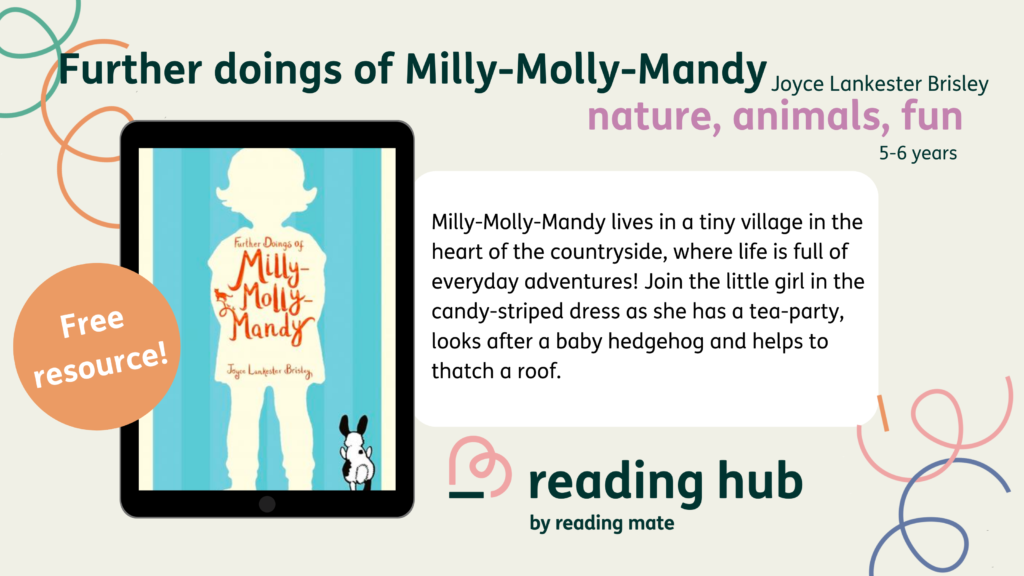Parents have many roles in the home; care taker, cook, cleaner, taxi service, hair dresser, personal stylist, laundrette, just to name a few. In 2020, teacher was also added to that list, with many struggling to encourage their children’s reading at home.
Since being back at school, all of my conversations with parents have revolved around how much healthier their relationships are with their children now they’re back. For some parents, I know that school and home are two completely different entities.
Looking for lesson ideas for your class? Click here to find 5 classroom activities for Further Doings of Milly-Molly-Mandy by Joyce Lankester Brisley.

Balance is the key to encouraging children’s reading at home
I do feel that balance is the key to everything; school, food, exercise, reading, family. In order to commit to any of these properly, I need to make sure they’re all equally represented in my daily routine. The same applies to children’s reading.
With the pressure on children to perform constantly increasing, for parents it can feel like the lines between school and home are gradually more blurred. Of course, with home learning, spellings, school reading books, your child’s perception of reading can become disappointingly quite negative. As a teacher, I feel this does not have to be the case.
Children’s author, Cressida Cowell, says:
‘If the books your kids bring home from school don’t interest them, try others from the library. Don’t force your son or daughter to finish a book they don’t like.’
I couldn’t have said it better myself. When encouraging children to read for pleasure, the worst thing you can do is force them to read a book they have absolutely no interest in!
From the minute your child joins primary school, they will be practising and applying literacy and reading skills on a daily basis. Soon this will develop into prescribed reading books and spelling tests. To your child, these will feel like an extension of school and as a result may have very negative connotations for them.
It needs to be their choice
Ultimately, reading at home can make a huge difference, so if we want to encourage children’s reading at home, we need every part of it to be their choice: the book, the time, the duration. If they only want to read non-fiction books about tractors, let them.
If they only want to read for ten minutes in the morning whilst waiting for their school bus, praise them.
And…if they only manage to read two pages, encourage them.
Technology aside, the reason I believe our children are not reading at home as much as they should, is because it doesn’t feel like the fun or better option. We need to drive a passion for reading in our children if we want them to flourish in all areas of their life. To quote the wise and wonderful Cressida Cowell again…
‘The quest to get every child reading for pleasure is not just an optional extra – it’s an imperative.’ – Cressida Cowell

